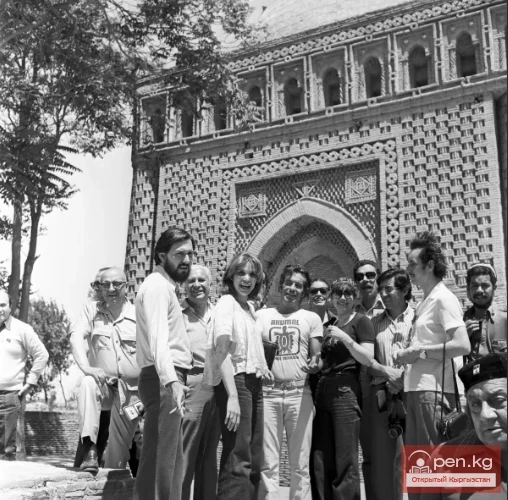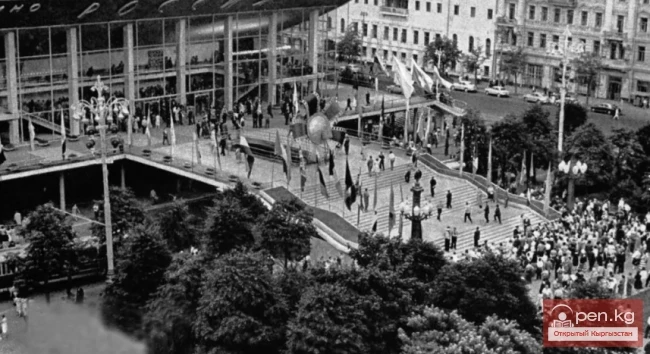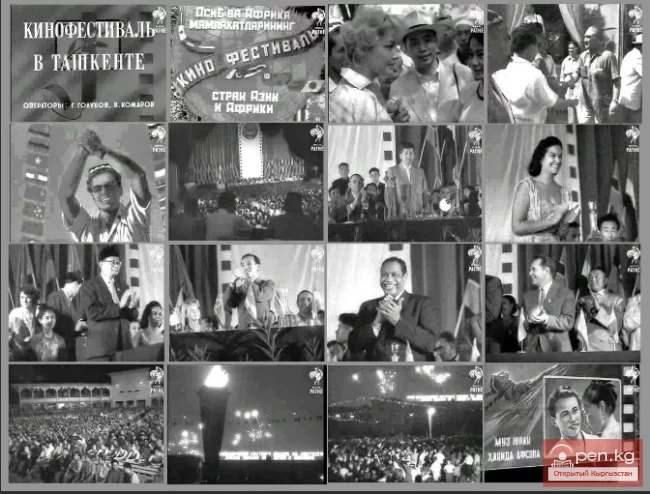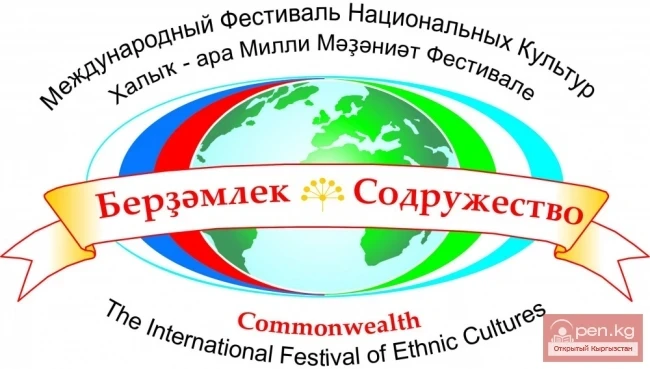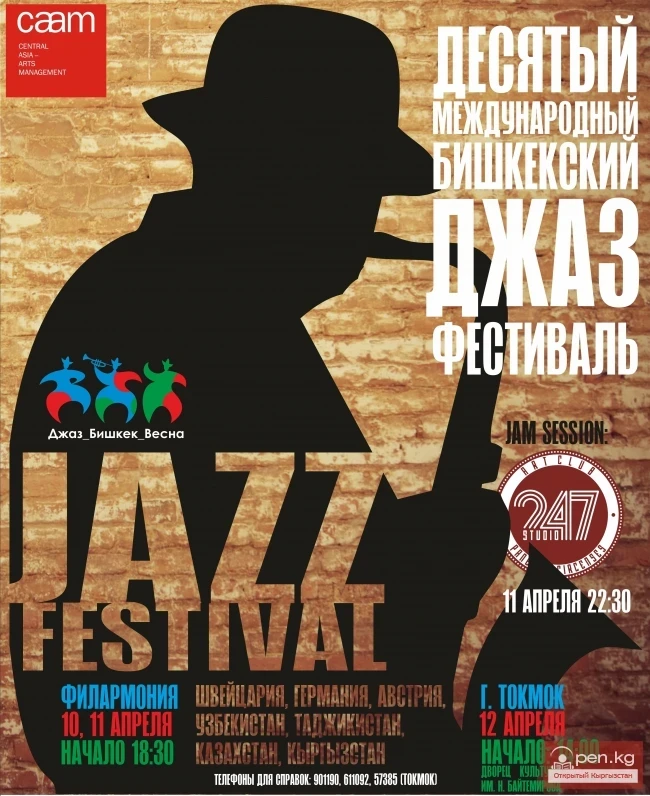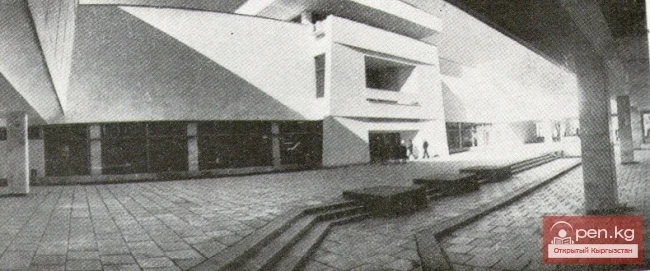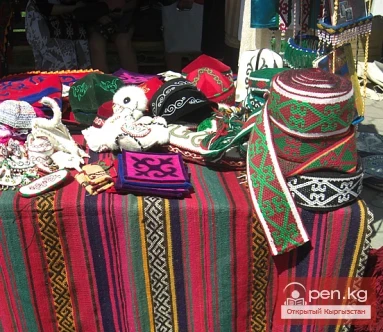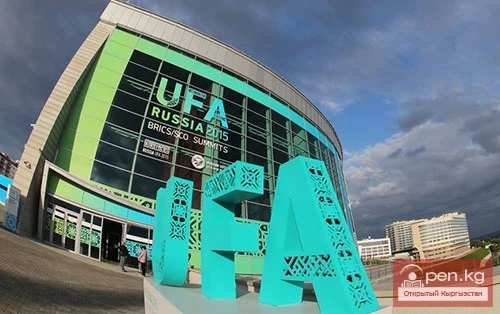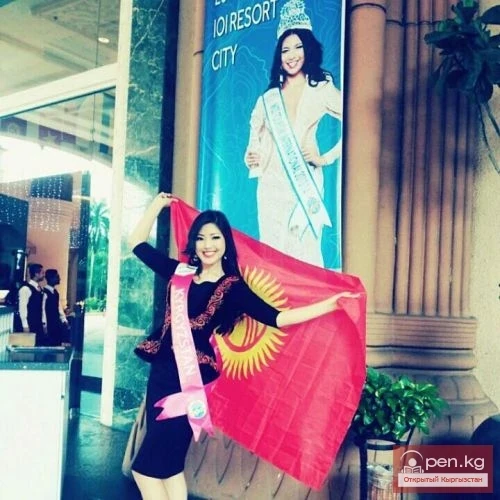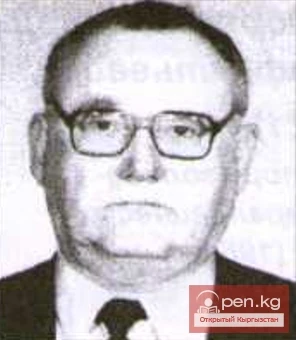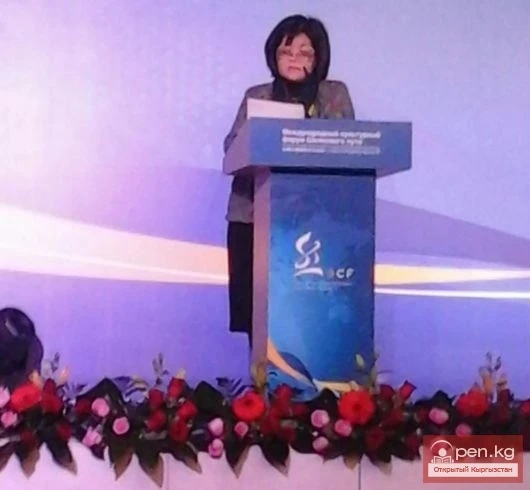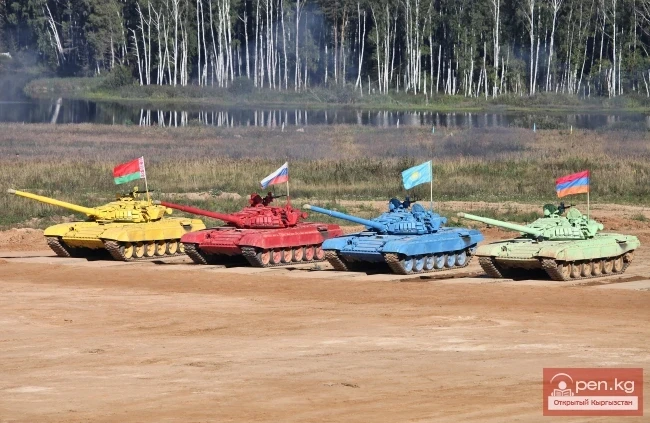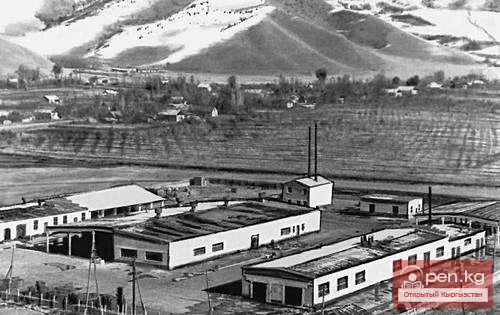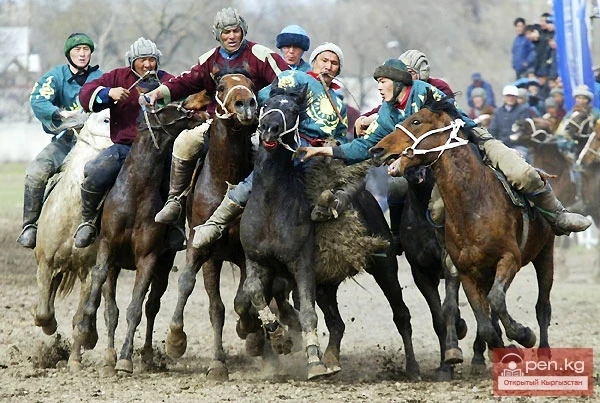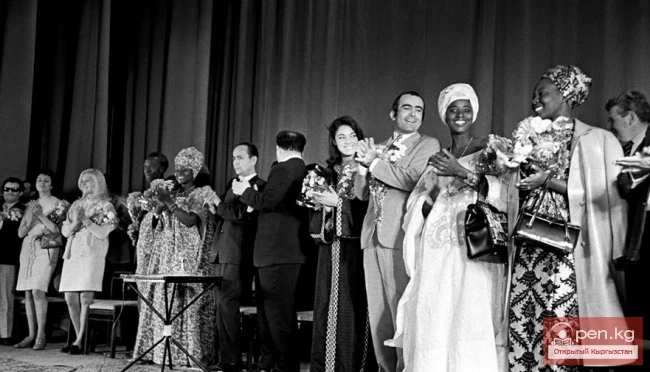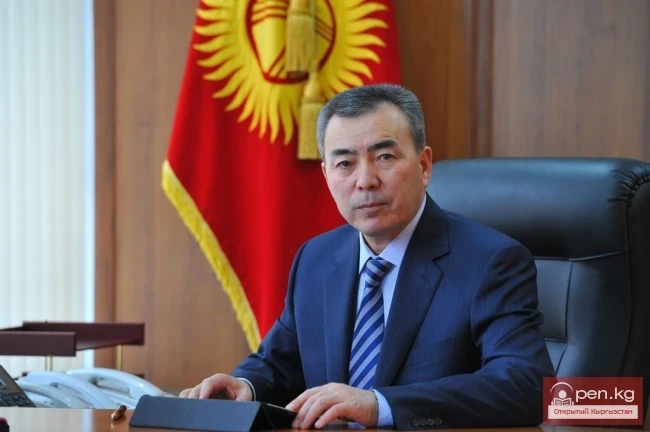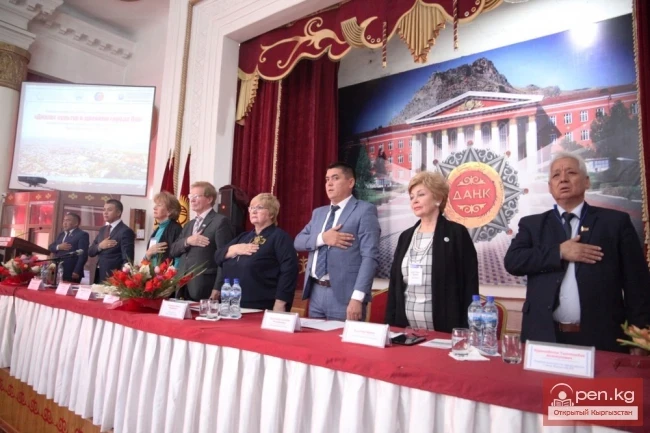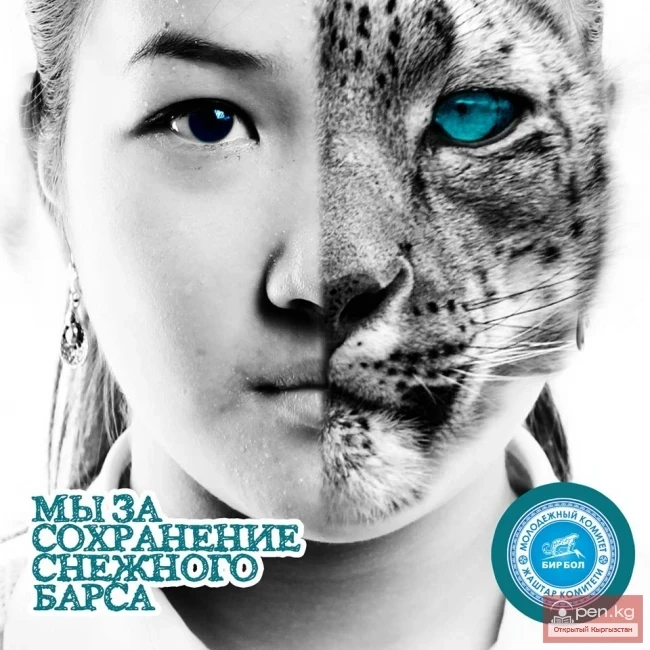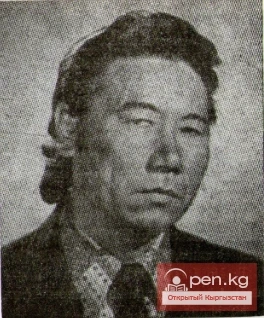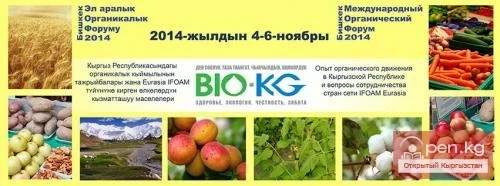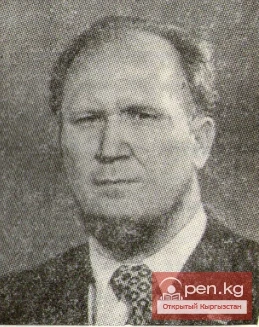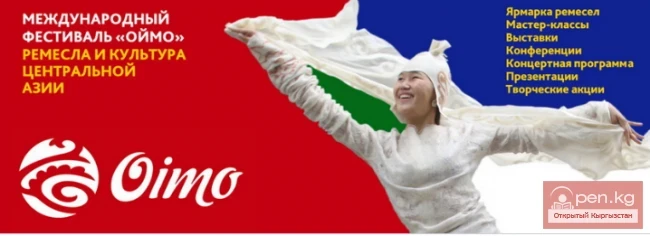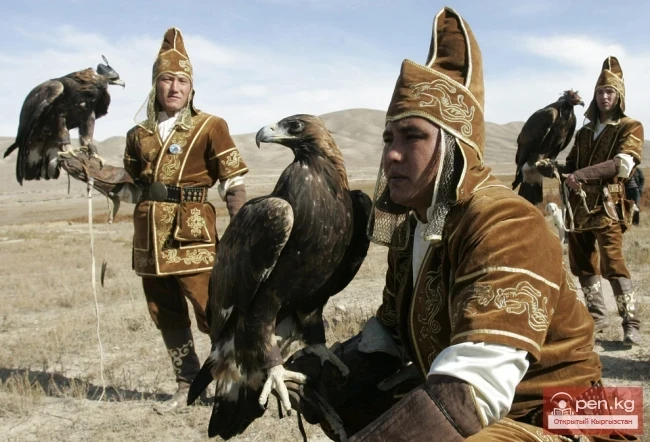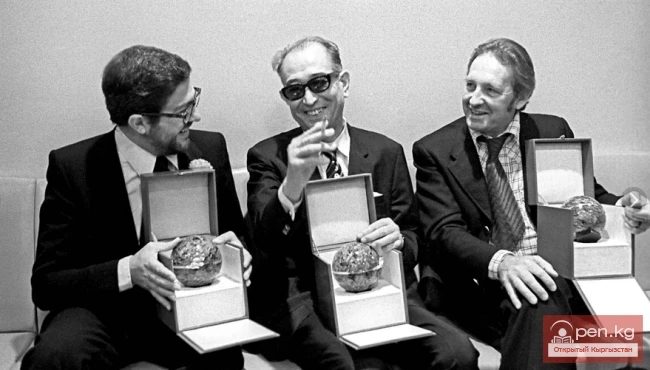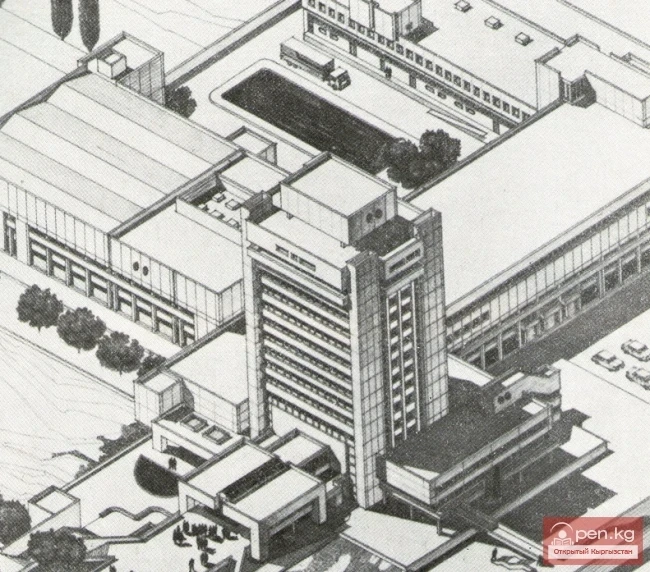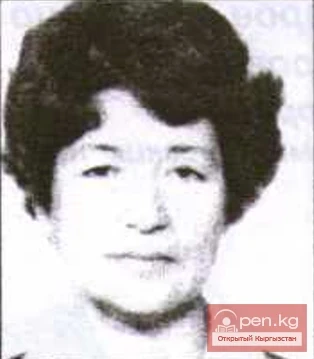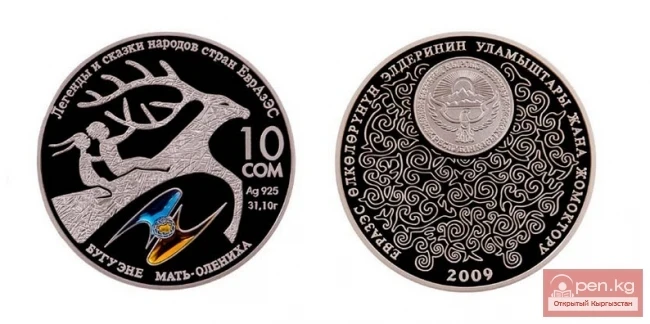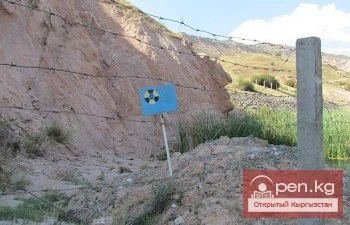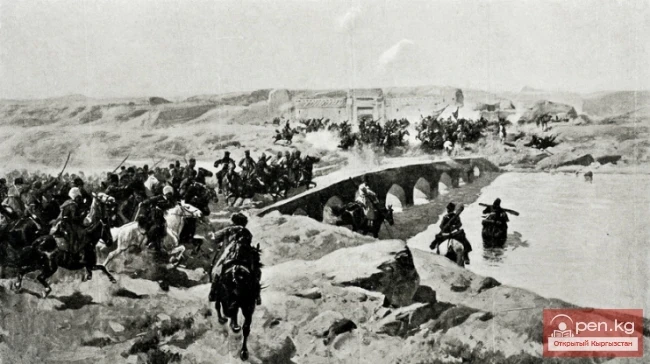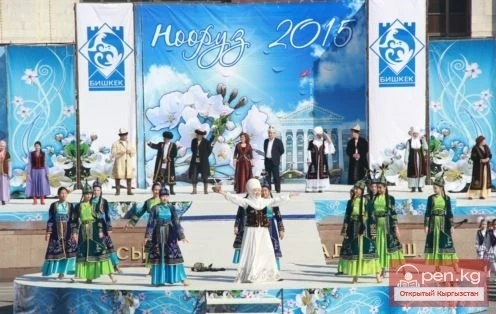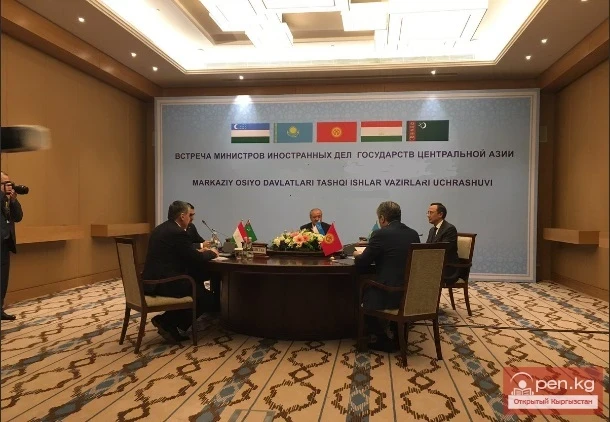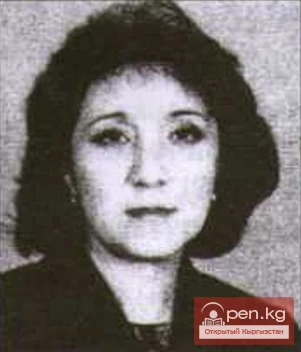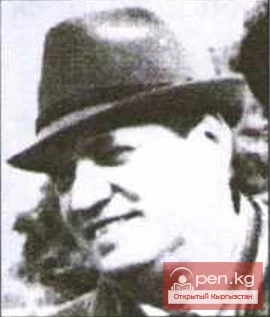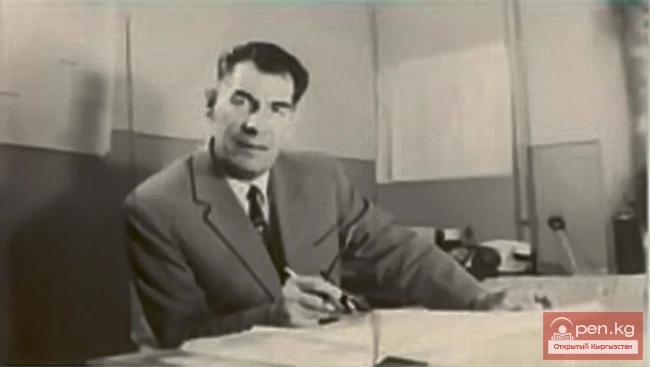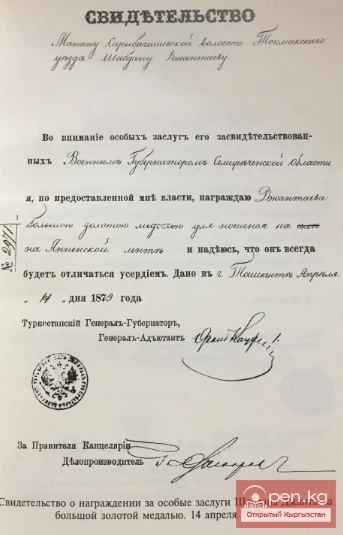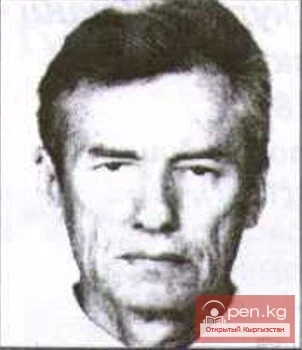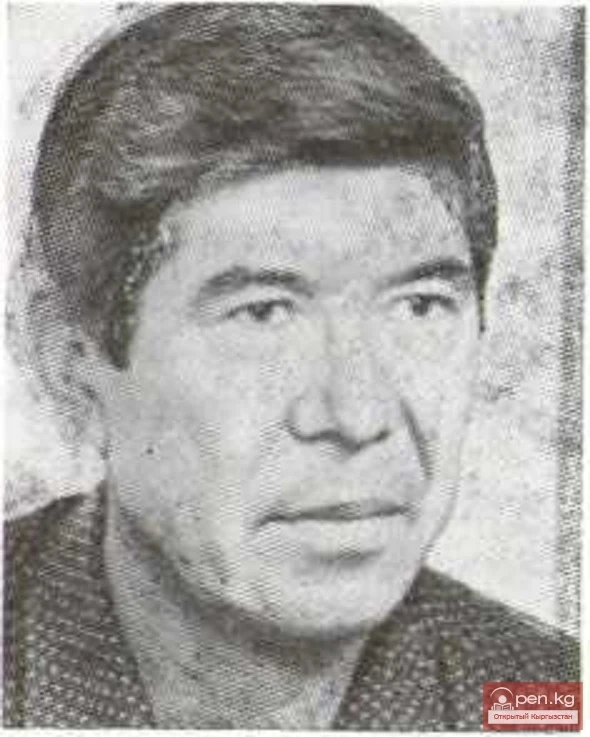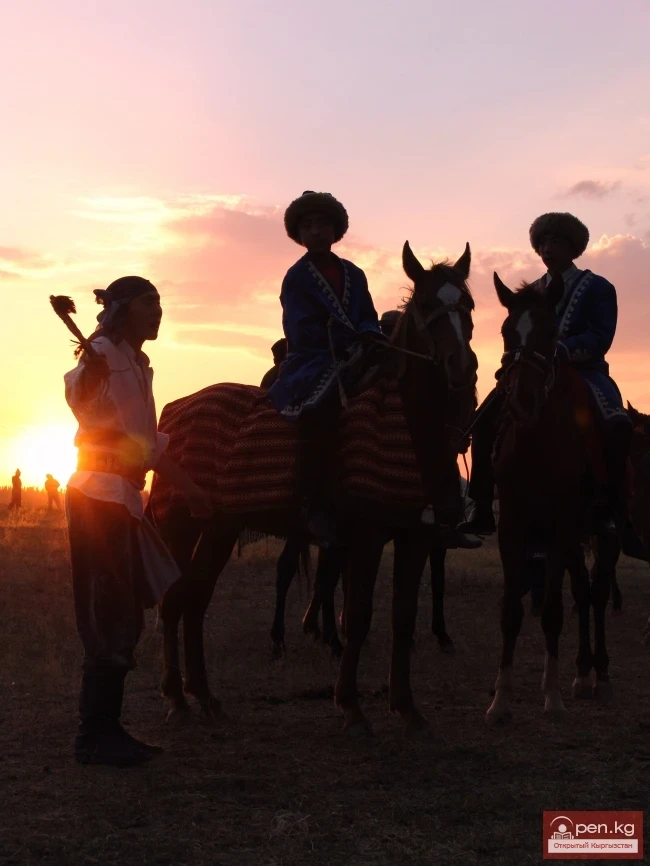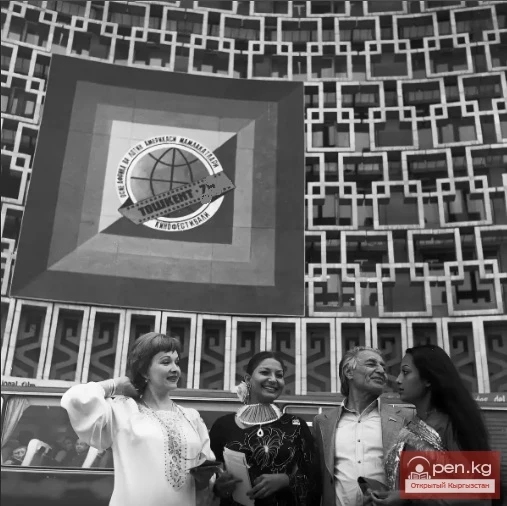
Representative Film Forum "Tashkent-74"
In ancient times, the paths from Russia and India, from the Middle East and the African continent converged in the ancient Uzbek city of Tashkent. Today, in the ancient yet surprisingly young and modern Tashkent—the capital of Soviet Uzbekistan—progressive filmmakers from Asia, Africa, Latin America, and many European countries gather every two years. A representative film forum! — The International Film Festival of Asian, African, and Latin American countries in Tashkent is one of the youngest in the world, having already firmly earned deserved recognition and authority among cinema professionals, for whom the motto of the Tashkent festival: "For peace, social progress, and the freedom of peoples!" is the meaning of life, work, and creativity.
On May 20, 1974, the III International Film Festival of Asian and African Countries began in Tashkent. Its emblem—a globe encircled by a film strip inscribed with "Tashkent-74," "Film Festival of Asian and African Countries"—became inseparable from the festive appearance of the hospitable sunny city during the last third of May. On the facades of the "Tashkent" and "Russia" hotels, built according to the latest architectural trends of the Palace of Arts, where official screenings of feature films took place, and the House of Knowledge, which hosted screenings of documentary films, on the facades of the city's largest cinemas, from the pages of newspapers and magazines, from photo displays, from polyethylene souvenir bags—the festival looked back at you from everywhere; the emblem of the Tashkent International was worn on the chests of those who participated directly: a blue badge for guests, a red one for translators, and a green one for the press. In numerical terms, this meant: forty-six countries from Asia and Africa, eight from Latin America (Cuba, Argentina, Brazil, Bolivia, Venezuela, Colombia, Mexico, and Peru), European socialist countries, the PLO and UNESCO, the USA, England, Italy, France, and nine Soviet socialist republics—participants and guests of the 1974 festival. For the first time, Laos, Burundi, and the Palestine Liberation Organization were represented, with the latter's posters featuring a gun and a film projector—symbols of cinema, which plays a huge role in the struggle for the freedom of the people. About 70 correspondents from foreign newspapers and magazines from 33 countries covered the festival's activities.

Soviet journalists stayed at the "Russia" hotel. After a busy festival day filled with impressions, meetings, and exchanges of opinions at press conferences (which began daily at 9:30 AM), after excursions and screenings, after urgent, hectic journalistic daytime tasks, and after the exhausting heat subsided (the Frunze summer felt simply cool after the Tashkent spring), reports about the festival's latest day were sent from the ajar doors on the sixth and seventh floors of the "Russia" hotel to many editorial offices.
Journalists worked so that the next day, transcribed by stenographers and urgently sent to typesetting, the news from the Tashkent International would be known in the most remote corners of the country. In the morning, in the lobby, before heading to the next press conference, they read their (and not only their) reports in the freshly received newspapers: V. Molchanov and Yu. Mukimov ("Pravda"), Yuri Cherepanov ("Izvestia"), Valentina Ivanova and Mark Torchinsky ("Soviet Culture"), G. Dolmatovskaya ("Literary Gazette"), E. Ivanova (APN), T. Mamaladze and V. Niyazmatov ("Komsomolskaya Pravda"), special correspondents of "Soviet Screen" M. Chernienko, A. Linkov, I. Gnevashov, I. Gnisyuk... And at the entrance, a shiny "Ikarus" was already waiting—it was time to dive into another festival day.
The work of Uzbek journalists deserved the greatest recognition during the festival days. Special issues of the newspaper "Uzbekiston Madaniyati," edited by Laziz Kayumov, were published at that time in four languages: Uzbek, Russian, French, and English, along with special emergency issues of the "Festival Diary," quickly filmed by operators from the Tashkent Studio of Documentary and Popular Science Films, and shown that same evening before the start of the next official screening on a huge screen at the Palace of Arts. The promptness of which many chroniclers could and should learn from... The color films, expressively edited, of the "Festival Diary" became its distinctive calling card, uniting the diversity of events, faces, and impressions of the grand celebration of cinema that had come to the land of Uzbekistan.

The new meeting of colleagues, the joint discussion of current issues in film development, and the exchange of creative experiences undoubtedly contributed to the unification of the forces of progressive figures in cinema. A vivid confirmation of this was the creative discussion held within the framework of the festival at a "round table" on the topic: "The Role of Cinema in the Struggle for Peace, Social Progress, and the Freedom of Peoples."
At the "round table" in the vast conference hall were renowned directors: Satsuo Yamamoto (Japan), whose films "Street Without Sun," "Song of the Cart," "Wounded Earth," "Slave Factory," and "The Great White Tower" gained recognition worldwide, with the last film winning a silver prize (ex-aequo) at the V International Film Festival in Moscow; in Tashkent, we saw Yamamoto's new work—a pacifist film tapestry "War and People"; one of the first filmmakers from Africa, Nolen Vizira (Senegal), Ahmed Khalaf (Iraq), Antoine Molongo (People's Republic of Congo), Fung Hoa (Republic of South Vietnam), Paris Rohelio (Republic of Cuba), and Green Sergio Olkhovich (Mexico). A recent graduate of the All-Union State Institute of Cinematography, a student of the famous Soviet film director Igor Talankin, he presented his first film "Meetings of a Lonely Man" here—an interesting work made at a high professional level. By the way, it was Sergio Olkhovich who proposed during the discussion the advisability of the official participation of progressive masters of cinema from Latin American countries in the Tashkent festival. "The International Film Festival of Asian, African, and Latin American Countries"—this, in the opinion of the Mexican director, is what the Tashkent film review should be called: masters of progressive cinematography from Latin America have participated in the Tashkent festival before and have earned the official right to participate in it with their works. Olkhovich's opinion was supported by the head of the Soviet delegation, laureate of the Lenin and State Prizes, and People's Writer of Kyrgyzstan Chinghiz Aitmatov.

Chinghiz Torekulovich's speech was listened to with great attention and interest. Foreign guests tightened their headphones (the simultaneous translation was in English, French, and Russian), and we, finally removing the pressing "technique," began to listen to the calm, familiar voice.
Focusing on the organizational issues of the obvious necessity for the official participation of Latin American countries in future festivals, discussing the advisability of making Arabic one of the working languages of the festival, and mentioning the prospects for joint productions and film productions by masters of cinema from different countries, Aitmatov emphasized that cinema is the art of the 20th century that can most fully and powerfully embody the complex life material of modernity, understand the person of our era, and convey the spirit of the time.
— The urgent need of Afro-Asian cinema lies in decisively overcoming the so-called romanticism, or rather, false romanticism, which diverts a person away from real life contradictions and socio-political struggles,— concluded Aitmatov to the applause of those present.
Kyrgyz Documentary. Television and Cinema of Kyrgyzstan in the 70s—early 80s. Part-7
